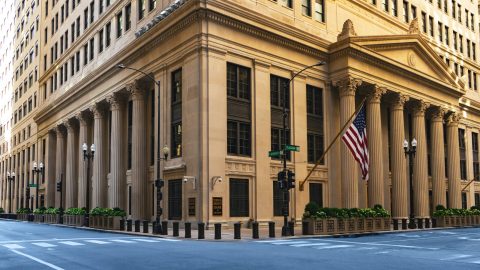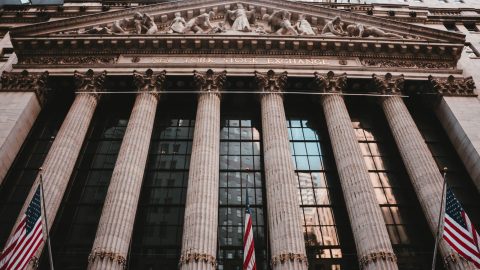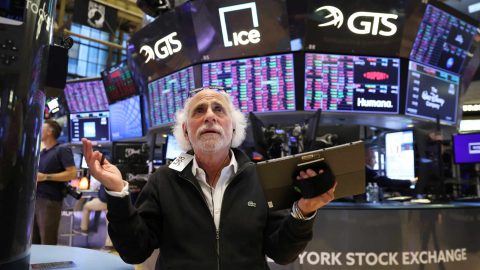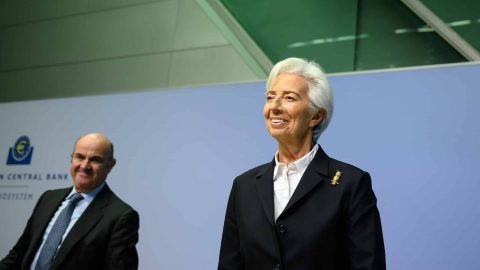Articles about “ECB”
Rising inflation expectations and yields: a risk for market sentiment?
Two developments on the stock markets have stood out since the beginning of the year: rising inflation expectations and significant increases in government bond yields. Could market sentiment soon turn frosty in view of this?
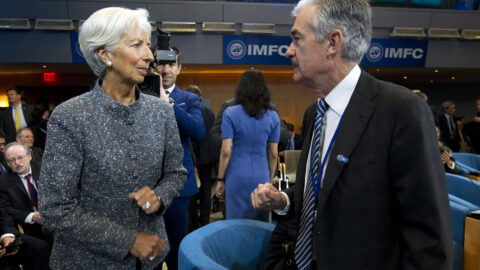
Interest rate cuts at the door
After the rapid and sharp interest rate increases in 2022 and 2023, the pendulum is now swinging in the opposite direction. After the European Central Bank (ECB), the US Federal Reserve will cut key interest rates for the first time this Wednesday, thus initiating a new cycle of interest rate cuts. What does all this mean for the economy and what conclusions can be drawn from it for investments?
Signs of a slowdown: more scope for central banks?
Economic and political uncertainty is increasing. Nevertheless, inflation is falling in the USA and the eurozone. This increases the scope for central banks to react to a slowdown in economic growth by lowering key interest rates.
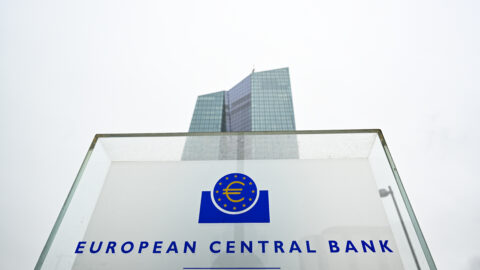
ECB interest rate policy: First rate cut, and then?
The European Central Bank is likely to cut its key interest rate tomorrow for the first time since the interest rate turnaround in 2022. But what comes next? Will the first cut herald a series of interest rate cuts or will the monetary guardians remain cautious? Chief economist Gerhard Winzer takes a look at the ECB’s possible future interest rate policy.
Favorable indicators: Soft landing on approach?
More and more indicators are pointing to good global growth. Even regions and sectors that had recently weakened are likely to return to growth. The soft landing after the sharp rise in inflation and the turnaround in interest rates could succeed. The decline in inflation is pausing at the same time, as yesterday’s US inflation data shows.
Interest rate cuts and economic growth – a favourable environment for the markets
Even though the ECB recently left its key interest rate unchanged, central banks are increasingly signaling an inclination to cut interest rates for the first time. At the same time, the indicators point to good economic growth at a global level. These are positive signals for the stock markets.
Inflation, interest rates, markets: 10 topics for 2024
After the price rally at the end of last year, the markets started 2024 with price losses. The ongoing positive correlation between bonds and equities is striking. Both asset classes have fallen equally recently, which makes diversification in a portfolio more difficult. But the year has only just begun. We therefore take a look at 10 key topics for 2024 that could be helpful when putting together a portfolio.
Increasing optimism for a “soft” economic landing
While equities have recently risen, yields on the bond market have weakened. The markets are being supported by increasing hopes of a “soft” landing for the economy. What are the chances of this scenario?
Phillips curve: Is there a risk of structurally higher inflation?
Inflation rose sharply in 2021 due to several supply shocks. Although there is a clear downward trend. However, the supply shocks could also have a structural effect on inflation. A look at the Phillips curve model can shed light on this.
Conditional pause on interest rate hikes
The European Central Bank has raised the key interest rates probably for the last time in this interest rate cycle. But the rising oil price poses a risk that the ECB has only taken a pause.
What are the lasting results of the central bank meeting in Jackson Hole?
At the annual meeting of central bankers in Jackson Hole Federal Reserve Chair, Jerome Powell, summed up the uncertain environment as “navigating by the stars in a cloudy sky”. This relates, among other things, to the uncertainty about the level of the neutral interest rate, the lagged effect of key-lending rate hikes on economic growth and inflation, and the drivers of inflation.
How high do key interest rates still climb?
Both the European Central Bank and the Federal Reserve in the USA raised the key interest rate by 25 basis points last week. However, both central banks signalled that the end of the cycle is near – or may even have already been reached after the recent rate hikes.
Best of Charts: Beach Edition
The stock markets are also usually a little quieter during the summer months. Many market participants take a break due to holidays and the general activity decreases. In any case, a look at some important charts indicates that no nasty surprises are to be expected during the holidays.
Strong first half of the year: What`s next for the stock markets?
The stock markets look back on a strong first half of the year. In addition to the already familiar factors of inflation and key interest rates, the trend topic of artificial intelligence (AI) came into focus. In this interview, fund manager Tamás Menyhárt looks back on the past six months and tells us what has to happen for 2023 to end as happily as the first half of the year did.

Recession, inflation, key interest rates: Economic outlook for the second half of the year
The feared recession has so far failed to materialise and inflation is also falling. Nevertheless, the risks remain on the downside. What could be in store for the markets in the second half of the year?
Fight against inflation: Monetary policy remains restrictive
Central banks remain on a restrictive course and hold out the prospect of further key interest rate hikes. Although there are some signs of a further decline in inflation, it is falling more slowly than expected. You can read where the journey could lead in the blog post.
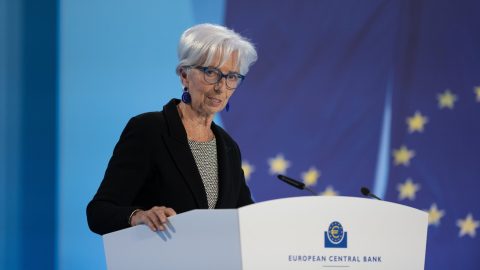
Interest rate decisions in focus: what will the central banks do?
This week, the markets are eagerly awaiting the upcoming interest rate decisions. The Fed in the USA will make the first move today, Wednesday. For the first time in the current cycle, no increase in the key interest rate is expected. For tomorrow’s interest rate decision by the ECB, on the other hand, the market expects a further rate hike of 25 basis points.
Inflation in Europe likely to have peaked
Inflation data in Europe recently showed a surprisingly significant slowdown. The decline in energy prices in particular had a dampening effect. Read our latest blog post to find out about the current inflation in the individual EU countries.
US labour market: strong employment growth
Surprisingly good figures came from the US labor market in the previous week. Despite the strong growth in employment, however, economic growth has recently been rather meager. Recession risks also remain at an uncomfortably high level.
Banking problems support share prices
Since the banking problems in the US emerged in March, share prices have risen and expectations for future key interest rates have fallen significantly. However, inflation dynamics remain the most important factor for the markets, but unfortunately also one that is difficult to assess.
Robust economy despite recent turbulences
Despite the recent turmoil in the banking sector, both companies and the global economy are currently proving to be extremely robust. Read more about the current market environment in the commentary by Gerald Stadlbauer, Head of Discretionary Portfolio Management at Erste AM.
Positive January on the markets
On the stock markets, the first month of the year was positive. The recent softer tones of the central banks give rise to hopes that interest rate hikes are slowly coming to an end. Read more about the current market assessment in our Investment Update.
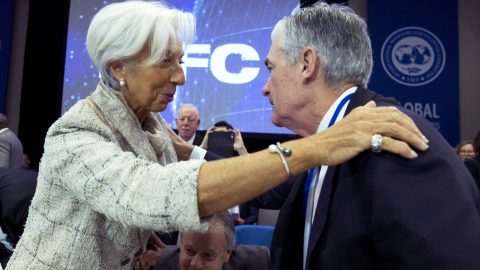
Thrilling decisions before Christmas
This week, the financial markets are once again in for an exciting ride: The European Central Bank and the US Federal Reserve will decide to what extent interest rates will be raised again.
Reduction in the pace of key interest rate increases
More and more central banks are signalling a reduction in the pace at which they are raising key interest rates. However, as Chief Economist Gerhard Winzer explains, this does not necessarily mean that central banks are softening their focus on fighting inflation. Rather, a pause in the rate hike cycle would require a change in inflation dynamics.
Is now the right time to invest in equities?
Global equity markets have been under pressure for several months. The short recovery phase in the summer did not last long. What are the reasons for the bear market and when could be a good time to enter?
Economy and interest rates in the context of global risks
What do global risks and rising interest rates mean for the economy? We talked to
Prof. Dr. Ernest Gnan, Secretary General of SUERF – The European Money and Finance Forum and former Head of the Economic Analysis Department of the Oesterreichische Nationalbank.

Good nerves and stamina required
The mood on the capital markets has deteriorated further over the last months. In a comprehensive market update, Gerald Stadlbauer, Head of Discretionary Portfolio Management at Erste Asset Management, explains why stamina is needed in the current situation.
Monetary tightening even as growth slows further?
Last week, three major central banks have raised their key interest rates further. By nature, however, it is not easy to find the right key interest rate level – especially in the current environment.
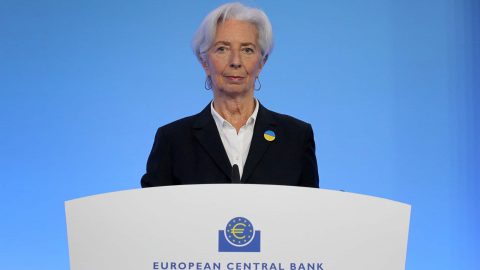
Mega interest rate hikes indirectly increase purchasing power
Gerhard Winzer, Chief Economist at Erste Asset Management, provides an overview of recent economic developments and explains, among other things, what structural problems the euro is facing.

Way Out Recession?
The prices of risk asset classes are subject to downward pressure. Is an inflation spiral likely to occur? Will the increase in key interest rates trigger a recession?

High inflation rates increase downside risks
Inflation rates continue to rise, prompting central banks to accelerate rate hikes. Which models for the future inflation development are conceivable? Erste Asset Management Chief Economist Winzer analyzes which scenarios are imaginable in the future.
The return of the yield was short and painful
Due to the rapid rise in yields, almost all types of bonds have suffered significant price losses since the beginning of the year. But now you have the chance to take advantage of the higher yield level. Find out the best way to do this in today’s blog.
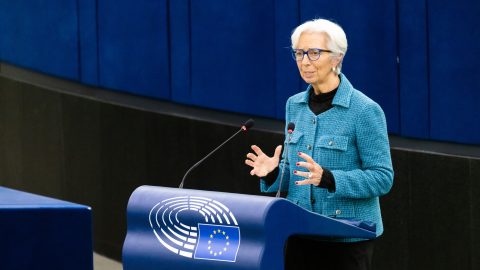
ECB and price stability – an oxymoron?
Is the ECB reacting too late to the rising inflation? Is the massive money supply a ticking time bomb? All eyes are on the European interest rate policy.

Sustainable income with “double dividends”
Comfortably making return on the money market via interest? A thing of the past. Investors wanting to outsmart inflation should think about dividends and dividend shares. The combination of dividend shares with a selection process that takes into account ESG criteria constitutes an interesting investment alternative. So there is a kind of “two dividends”.
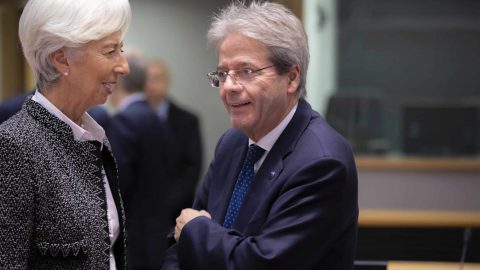
ECB and European Parliament get crisis programmes for 2021 on track
As the year 2020 comes to a close, the European Central Bank (ECB) and the European Parliament have put their respective programmes for the fight against the crisis on track for next year. The MEPs recently approved the approximately EUR 1.1tn Community budget for the next seven years, which includes EUR 750bn in Corona aid.
Will interest rates remain low in the long term?
The interest rates seem to have been going one way for years – down. With the exception of a few corrections, the taboo has been broken for many years that bond yields should have to be positive all the time.
ECB to buy bonds despite ruling of the German Constitutional Court
The European Central Bank (ECB) wants to stick to its bond purchases despite the recent ruling by the German constitutional court. “We will continue to do whatever is necessary to fulfill this mandate,” said ECB chief Christine Lagarde.
ECB bond purchases unconstitutional – Update from the Investment Division
What has occurred since yesterday ? Yesterday the German Constitutional Court has ruled that the Asset Purchase Program of the European Central Bank partly violates the German constitution. Via that program bonds of more than two trillion Euros were purchased since 2015 to bring liquidity to the markets and the economy. As the German constitutional […]
What is helicopter money?
While traditional monetary policy measures are also employed, the focus has recently shifted to a concept that has always been the subject of debate: helicopter money.
Rollercoaster ride continues – Update from the Investment Division
Rollercoaster ride continues. What has occurred since yesterday? And what will we be observing in the coming days? Update from the Investment Division
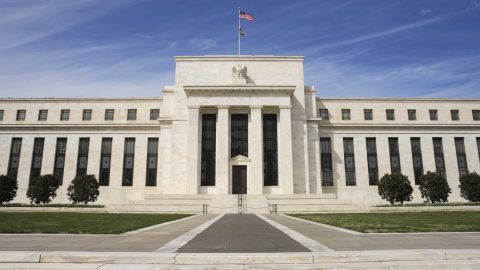
Coronavirus: US rate cut and now what?
The corona virus leaves traces in financial market policy. The US Federal Reserve cut interest rates surprisingly early on Tuesday. Erste AM chief economist Gerhard Winzer explains this measure in our interview.
European banks: equity issues and lessons from the financial crisis
What has the financial crisis shown us and what lessons have policy makers learned about “too big to fail”? The Deutsche Bank Commerzbank merger offers a lot of conversation points.
Stabilization or downturn?
The majority of economic indicators point to a slowdown in global real economic growth.
How will this dichotomy between the market and the economic environment be resolved and will there be a stabilization?
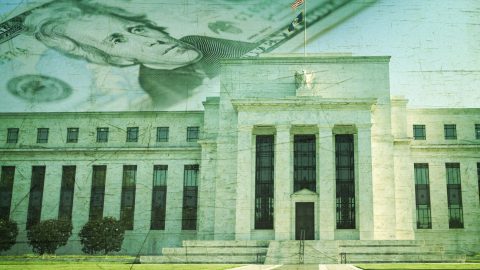
Constructive central banks
Risky asset classes such as equities have recorded price increases at the beginning of the year. The core question for the investor is: Is this recovery after the sharp decline in Q4 sustainable or not?
Market view: Increased uncertainty
The performance of most asset classes in the year to date has been mixed, to put it euphemistically. Is there a common underlying factor? Can we expect to see a better second half of the year?
30 years of falling interest rates – what is ahead of us?
Let’s start with a trip down memory lane: Do you remember the scenery 30 years ago – on the financial markets, and in our personal lives? The 1980s – many of the older generation are still thinking back to the “good old times”. There were no smartphones and no data kraken. Instead, we had shoulder […]
Italy: slipping into a crisis in confidence
The heightened uncertainty over whether Italy will repay its debts and whether it will remain a member of the eurozone has led to a sell-off in securities. Our chief economist Gerhard Winzer gives an overview.
Financial Markets Monitor May: positive opportunities outnumber negative ones
Positive opportunities still outnumber the negative ones on the capital markets – that was the conclusion of our Investment Committee. Our willingness to take risks is still optimistic and also moderately higher than in April.
European banks: Outlook for 2018
European banks (as measured by the Stoxx 600 Banks Index) had a decent year in 2017: the index climbed more than 8%, slightly outperforming the broader European market (Stoxx 600 Index). The strongest positive impulse came from the French elections in April last year, where the populist threat was successfully defeated by Emmanuel Macron, arguably the most market-friendly candidate among the contenders. A robust European economy and a solid business sentiment throughout the year also helped banking shares go higher.
An impressive stunt
The Council of the European Central Bank pulled an impressive stunt at the monetary policy meeting on 26 October. ECB President Mario Draghi announced to reduce the extremely supportive monetary policy in the near future while …








